“This opportunity to participate in the courses immediately after the displacement feels like a ray of hope in the difficult situation,” said Anush Melkonyan, a participant in the three-month course organized with the support of the Deutsche Gesellschaft für Internationale Zusammenarbeit (GIZ) GmbH.
The “Economic and Social Participation of Vulnerable Displaced Persons and Local Population in the South Caucasus” (EPIC) project is commissioned by the German Federal Ministry for Economic Cooperation and Development and implemented by GIZ. The project aims to mitigate the consequences of conflicts by empowering the displaced population and local communities.
The EPIC project is part of the “Resilient Syunik Team Europe” initiative. The latter is implemented by the joint efforts of the European Union, the European Investment Bank, EU member states - Austria, the Czech Republic, Estonia, Finland, France, Germany, Lithuania, the Netherlands, Poland, Sweden, as well as Switzerland, which participates as a partner.
“I did not know what to do and where to start”
Anush Melkonyan was born in Sisian community. After graduating from Goris State University, she moved to Hak village of Kashatagh region in 2010 to work as a teacher.
“I had a strong desire to work in my profession not in a “cosy” urban environment, but in a rural area, where specialists were needed and where I could make a difference,” noted Anush.
For many years, she worked at the Hak village school, striving to contribute to Artsakh’s development.
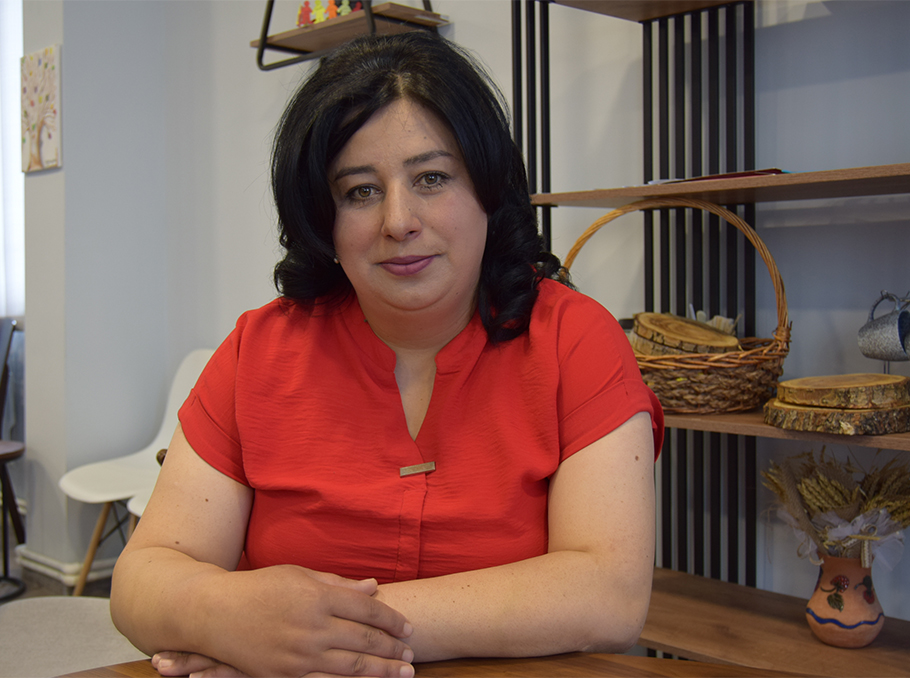 Anush Melkonyan
Anush Melkonyan Photo: Mediamax
“While I was living in Artsakh, the village’s infrastructure gradually developed. The roads were repaired, and electricity and water reached the houses. Just as life was getting better and we were to enjoy it, the ill-fated war began, and we were forced out of our homes,” Anush recalled.
In November 2020, Anush and her two children were displaced to Sisian with just one suitcase and children’s school bags. She tried to find work but had no success.
“I did not know what to do and where to start,” said Anush. Then, she learned about the three-month courses organised with the support of GIZ, which gave her hope for the future. The courses aimed to increase women’s employability, provide psychological and social support, and offer career guidance․
Another project beneficiary, Mary Marutyan, who lives in Goris, was also displaced from the Kashatagh region in 2020. She is from Berdzor and is an economist by profession. Mary also could not find a job in her field after being displaced.
“There was no job; we lived in uncertainty and kept thinking about returning to Artsakh. To this day, I cannot accept the idea that Artsakh is no longer ours. Sometimes I watch on social networks how the Azerbaijanis completely destroy Artsakh and our Armenian culture,” said Mary, choking back tears.
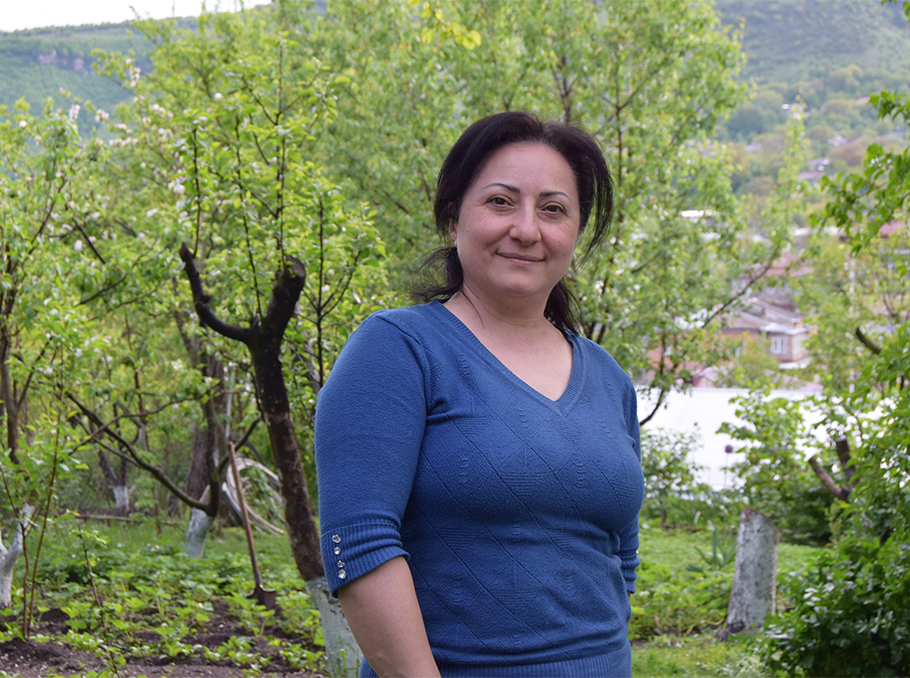 Mary Marutyan
Mary MarutyanPhoto: Mediamax
Soon, Mary had the opportunity to attend a manicure course, after which she got a job as a manicurist. However, the lack of customers made the income insufficient, so she and her husband started poultry farming. Mary decided to enroll in online courses aimed at promoting already existing businesses after learning about the EPIC project through social networks.
Empowerment of individuals and communities
Launched in 2017, the EPIC regional project aims to support the economic and social integration of displaced and vulnerable local groups. According to Katrin Buder-Pelz, Head of Development Cooperation at the German Embassy in Yerevan, the primary target group is women and children, as the most vulnerable group. The project focuses on three main areas: education, empowerment, and equipment.
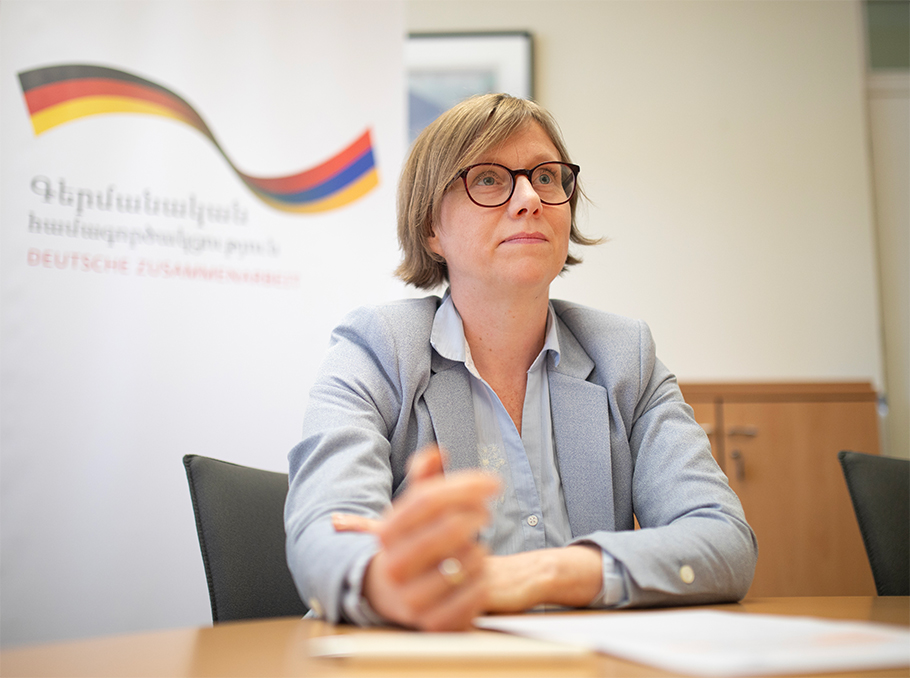 Katrin Buder-Pelz
Katrin Buder-Pelz Photo: Mediamax
“Primarily, we look at the abilities of the displaced individuals and how they want to earn money. We also pay attention to the communities that host displaced people. This is very important to show a comprehensive approach,” she said, emphasizing the importance of the psychological aspect of the project when working with individuals going through a difficult phase of their life.
According to Katrin Buder-Pelz, EPIC stands out as one of the most successful project. Since 2017, the implementers have gained significant work experience in Syunik, enabling them to achieve high efficiency.
“Over the years, we have been able to assess which tools are applicable and which are not. The success of the project has also been contributed by the conduction of online courses.
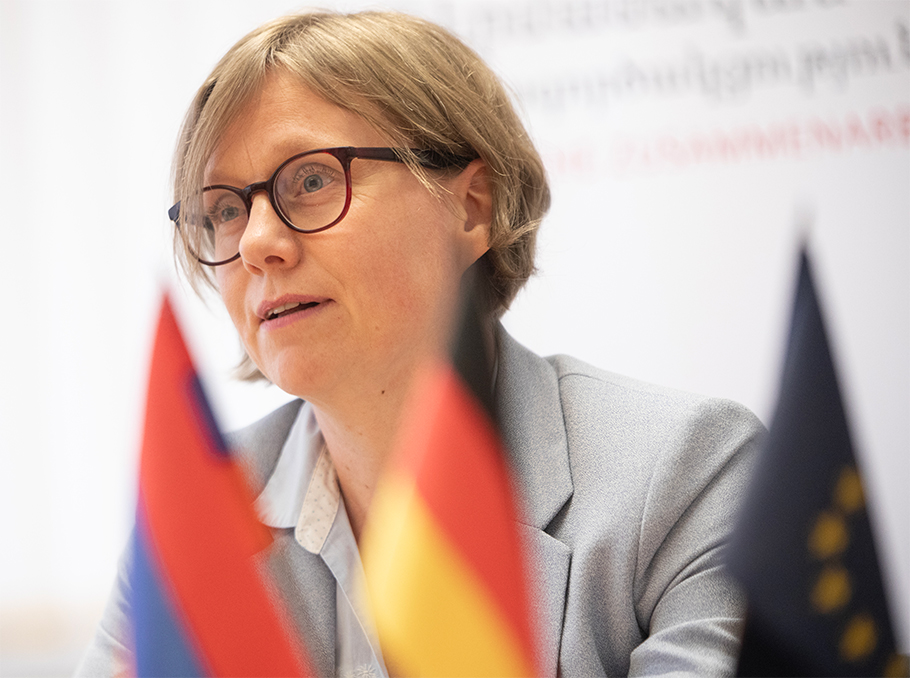 Katrin Buder-Pelz
Katrin Buder-Pelz Photo: Mediamax
This gives many women the opportunity to participate in the classes on more convenient terms because women are more involved in family and daily chores than men,” she explained.
Transferring skills and developing business
Project beneficiary Anush Melkonyan engaged in courses on various agricultural topics, including theoretical and practical courses on intensive gardening, animal husbandry, beekeeping, farming, and dry farming, organized at the Sisian branch of the National Agrarian University of Armenia.
“In addition to acquiring knowledge, the course was pivotal for my integration into the new environment. It also helped me to understand which agricultural direction appeals to me and what initiatives I can undertake to start life in the new community again,” said Anush.
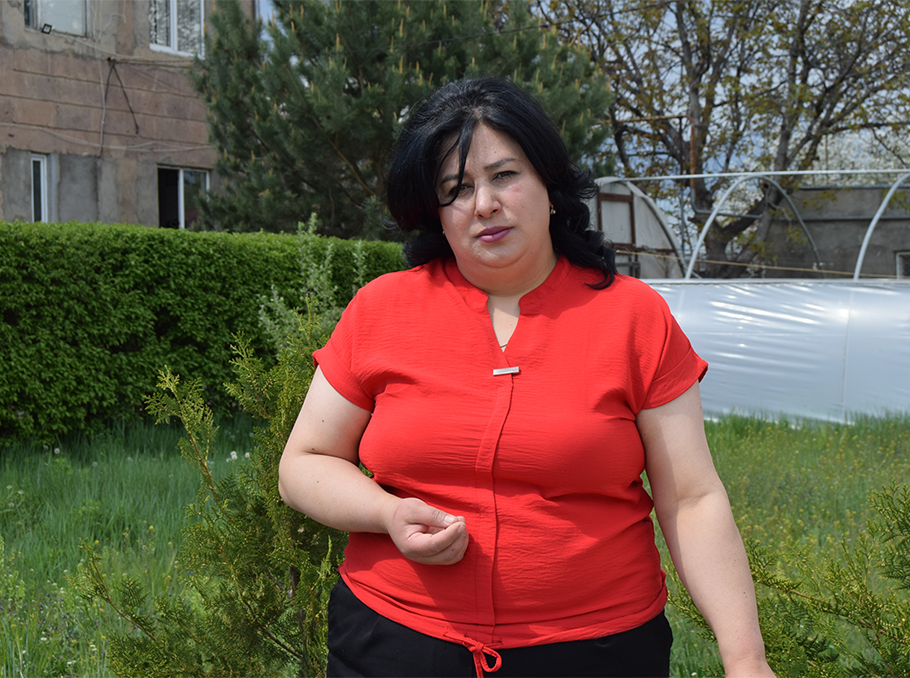 Anush Melkonyan
Anush Melkonyan Photo: Mediamax
After participating in the course, Anush sees herself in the field of beekeeping. Inspired by the courses organized with the support of GIZ, she also started learning a new profession. Currently, she is a student of the Beekeeping department at the Sisian branch of the National Agrarian University of Armenia and will graduate this year.
“I already have three beehives, which I bought with the one-time support money provided by the state at the beginning of the relocation. I received three more empty hives within the framework of the UN’s “Sustainable Communities” programme,” noted Anush, expressing hope that she will be able to develop the business in the near future.
Mary Marutyan attended the MSME development course and received professional advice for business growth and learned about social media marketing. EPIC also provided feather cleaning and concentrated feed preparation equipment for Mary’s family poultry business.
“On holidays, there were cases when we could not fulfil the orders, because the customers requested cleaned chickens, and I physically could not clean that much. That’s when the chicken cleaner came to our rescue. With it, we could clean 4-5 chickens in about 10-15 minutes to a pristine state, whereas before, it would take me several hours to clean the same amount,” explained Mary.
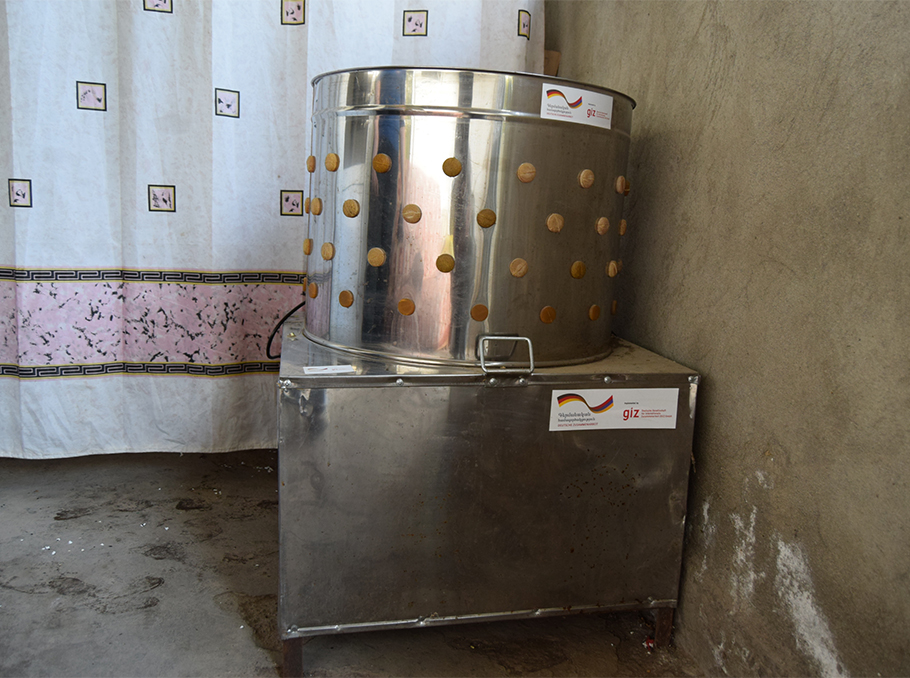
Photo: Mediamax
The concentrated feed preparation device was also a great help for the family. The high cost of commercial feed significantly impacted the profitability of their business.
“Now, with the help of this device, we prepare our own feed. It is rich in vitamins, easy to digest, and helps the chickens grow bigger quickly,” she said.
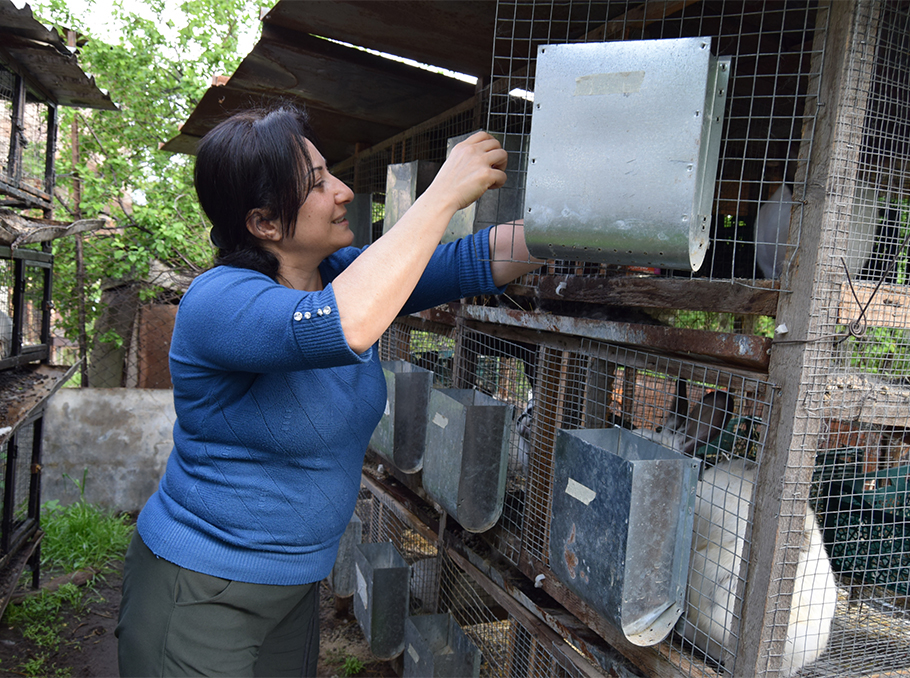 Mary Marutyan
Mary MarutyanPhoto: Mediamax
Gradually, Mary Marutyun developed an interest in rabbit breeding. They acquired rabbits and are now focusing their efforts on expanding this aspect of their business. Mary noted that there is a growing demand for it within the community.
New life perspectives
Katrin Buder-Pelz highlights that many beneficiaries of the project are now successfully running their businesses.
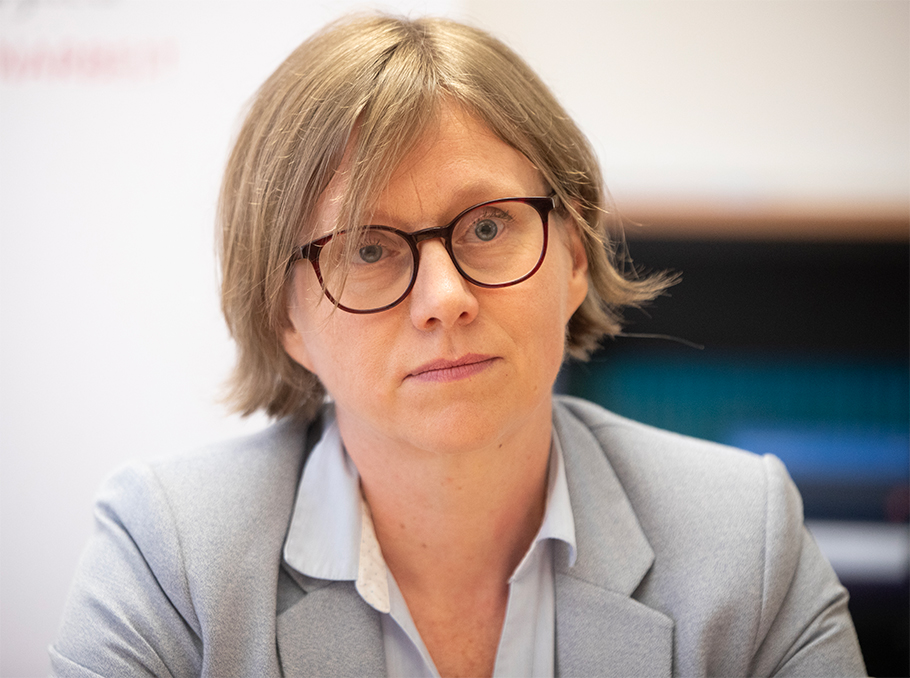 Katrin Buder-Pelz
Katrin Buder-Pelz Photo: Mediamax
“While developing the project , we considered both the income opportunities within the given communities and the capabilities of the beneficiaries. It is this combination that makes the courses most effective. Today, many beneficiaries not only financially support their families but also create employment opportunities for those displaced from Nagorno-Karabakh in 2023,” she explained.
Former beneficiaries of the EPIC project guide newly displaced people to take advantage of the opportunity offered, thereby expanding its reach.
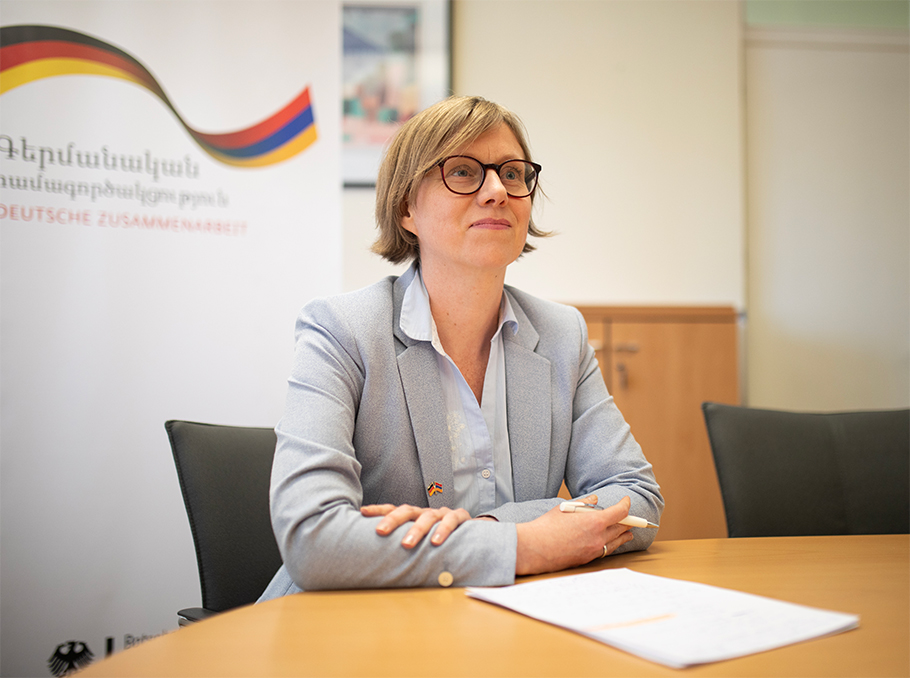 Katrin Buder-Pelz
Katrin Buder-Pelz Photo: Mediamax
“I was particularly impressed by the words of one of the displaced beneficiaries from Nagorno-Karabakh, who said that she found a new home. I think that this assessment proves that the project has enabled people to see new life perspectives, find new sources of income, and, to a certain extent, overcome traumatic psychological state,” Katrin Buder-Pelz summarized.
***
This article was published with the financial support of the European Union. Its content is the sole responsibility of Mediamax and does not necessarily reflect the views of the European Union, GIZ and Embassy of Germany in Armenia.
Gaiane Yenokian
Heghine Minasyan
Anahit Baghdasaryan







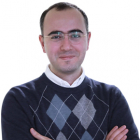
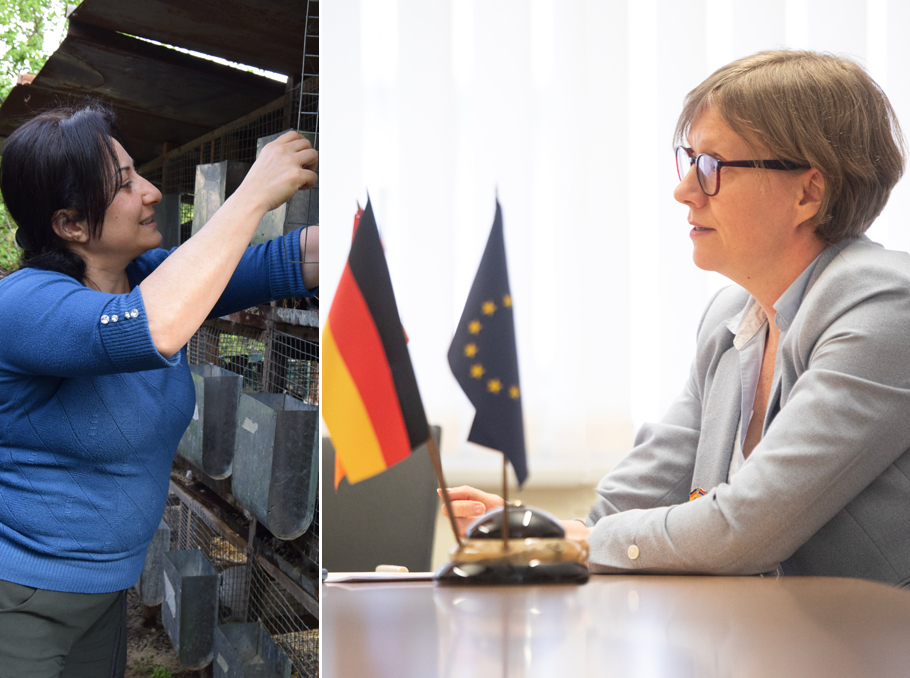
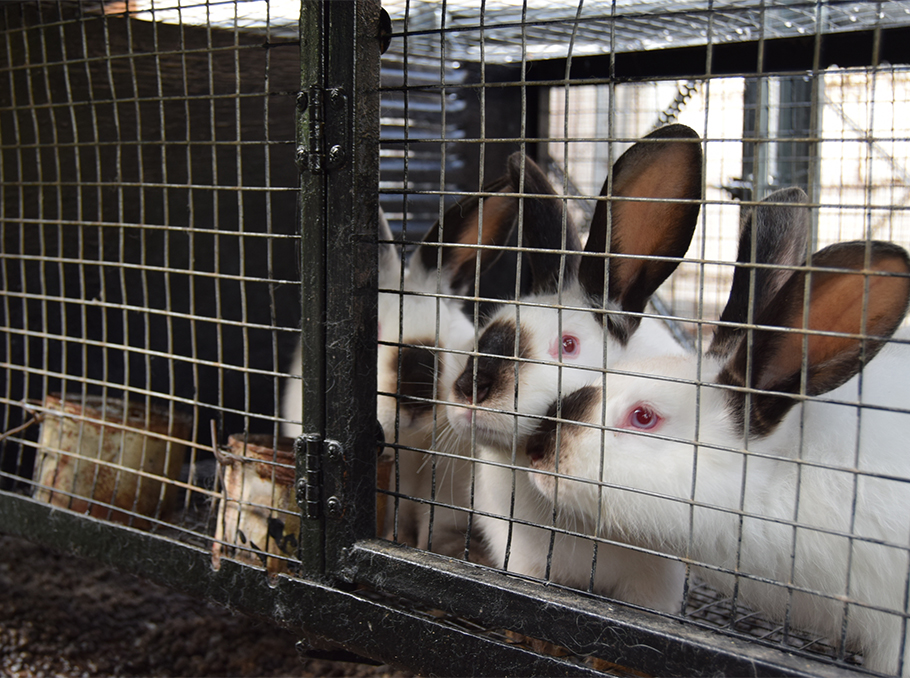







Comments
Dear visitors, You can place your opinion on the material using your Facebook account. Please, be polite and follow our simple rules: you are not allowed to make off - topic comments, place advertisements, use abusive and filthy language. The editorial staff reserves the right to moderate and delete comments in case of breach of the rules.